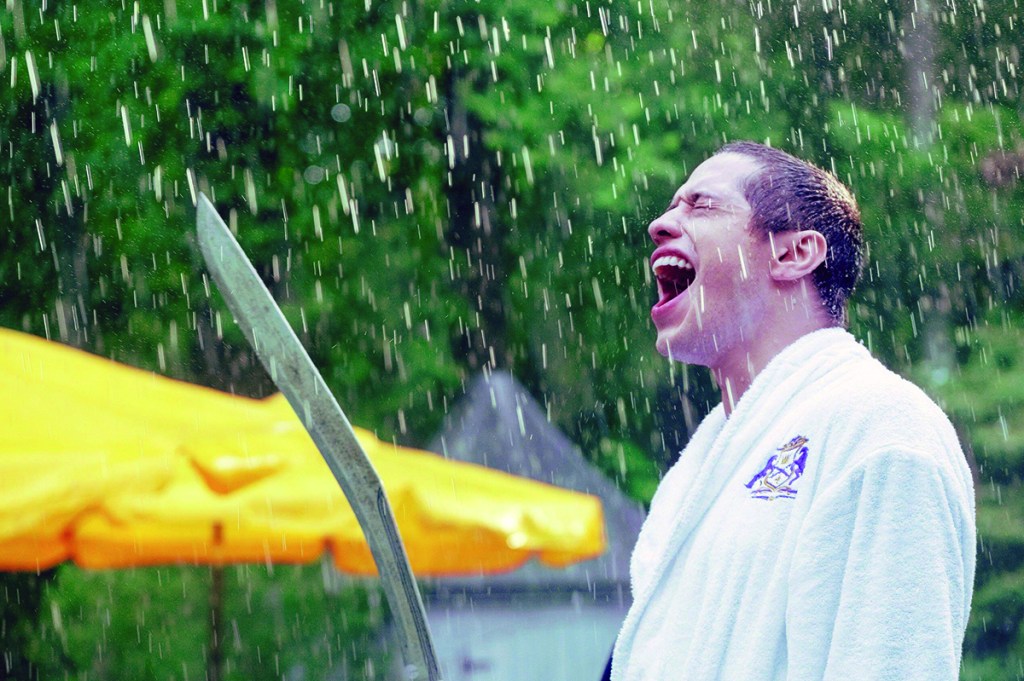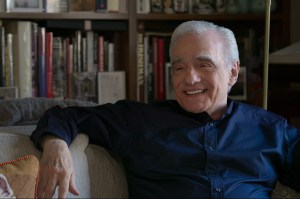Movies that define an era — Fast Times at Ridgemont High, Easy Rider, Casablanca — rarely get stuck there, even if anachronistic references and jokes fly by without notice today (does anyone watching Fast Times today know what a mimeograph is?). Annie Hall and Nashville are as particular to mid-1970s America as they are timeless works of art, both emotional panoramas of a period filled with affluent and successful but unhappy people, confused and eventually destroyed by their own wandering eyes and broken hearts. You didn’t have to have lived through the disappointment of the late 1960s — Vietnam, all of the assassinations — to feel the exhaustion and disillusionment of these films: it’s in every frame, often unsaid.
I went into Bodies Bodies Bodies skeptical, warned loud and clear by its horrifically tacky poster, which reads in huge type: “THIS IS NOT A SAFE SPACE.” It took over a decade for Nirvana and Pulp Fiction rip-offs to exit our cultural bloodstream, so I don’t think we’re anywhere near the end of “SJWs” and “wokeness” and Millennial/Generation Z emotional fragility as fodder for movies and television. Euphoria doesn’t talk down to its audience; neither did Girls, and for all the criticism those shows have gotten, their analysis goes beyond buzzwords and bad haircuts.
The film opens with a close-up of Sophie (Amandla Stenberg) and Bee (Maria Bakalova) making out in the woods. It’s a beautiful day, and Sophie tells Bee she loves her. “You don’t have to say it back,” she says. But after a quarter-second of silence, Bee responds with her own “I love you.” And then they’re off to their rich friend’s summer home (a mansion) with a bunch of their hard-partying friends. Sophie is sober and Bee is a new girlfriend, and the group immediately reacts with hostility towards the latter: “Who are you? Why are you here?” Even after Sophie cools things down, the questions continue, mostly from Jordan (Myha’la Herrold): “So did you move here from Moscow?” In the middle of the afternoon, these “friends” are drinking vodka and snorting cocaine yet still look miserable and are obviously uncomfortable around each other.
They’re in a house in the woods with no reception — a classic horror-movie set-up. But these kids don’t need a killer, a monster or a UFO to cut them down one by one: they have each other! Besides Greg (Lee Pace), the one “real adult” in this house of manic-depressive twenty-somethings, everyone is a mess, especially Alice (Rachel Sennott) and David (Pete Davidson), two airheads with easy access to drugs, money and weapons. Just about everyone ends up dead in Bodies Bodies Bodies, all victims of their own paranoia in a murder mystery that plays out like a real life “cancellation,” as new suspects are denounced as “toxic,” “ableist” and “borderline.” Has anybody ever held a knife to your throat while you cried that you thought they were an “ally”?
There’s one hilarious scene in Bodies Bodies Bodies, towards the middle, in which four people are left covered in blood and screaming at each other in the dark. At first it feels like just another familiar step in this kind of story, but then the four-way standoff escalates into delirious comedy, testing the audience’s endurance before it erupts with laughter. I saw Bodies Bodies Bodies with a full crowd on opening weekend, and that scene leveled the theater. It reminded me of the comically realistic fight in John Carpenter’s They Live, where it’s impossible to pinpoint the transition from mild confusion to primal laughter. Considering how much this movie depends on topical material, it’s remarkable how much it works on its own, as summer entertainment and satire.
Unlike other ripped-from-the-headlines dross like Karen, Bombshell and They/Them (an execrable conversion-camp slasher starring Kevin Bacon and safely tucked away on Peacock where no one will see it), Bodies Bodies Bodies is a successful satire of “cancel culture” that never hectors or patronizes. It is as dumb as its premise, and I don’t mean that in a bad way — this is a really fun movie to see with an audience, and Kristen Roupenian, who parlayed the unprecedented viral success of her short story “Cat Person” into book and movie deals, is no longer a one-hit wonder, even if her screenplay was entirely rewritten by writer/director Halina Reijn. If it weren’t for that hysterically funny scene in the middle, Bodies Bodies Bodies would just be another product of its time: four friends who hate each other, all screaming, dangerous and ready to kill. Finally we can laugh at people that trap themselves in games like this.
This article was originally published in The Spectator’s October 2022 World edition.

























